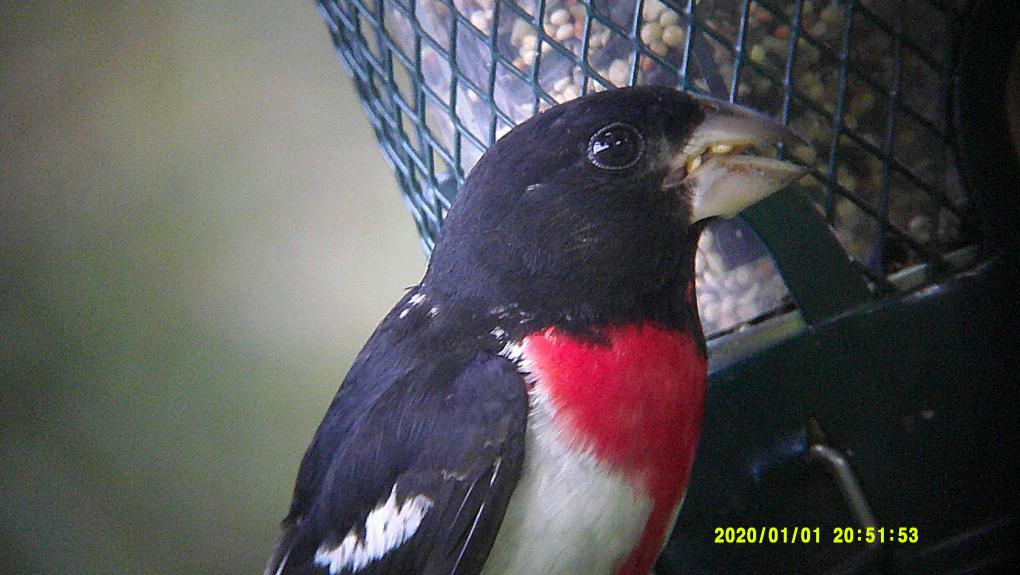The Cornell Lab Bird Academy › Discussion Groups › Birding Tips › Rose-breasted Grosbeak disappearance?
-
A picture of a male Rose-breasted Grosbeak is a thing to be treasured. I was overjoyed when I managed this photo of a Rose-breasted Grosbeak at my backyard feeder. He was paired with a female, and they kept visiting my feeder with a consistently begging juvenile. Unfortunately, after about a week, they disappeared and haven't returned since.
 You must be logged in to reply to this topic.
You must be logged in to reply to this topic. -
If you tell us what city, and country you live in that will help. Often they are just eating natural foods instead both plant and animal foods. There are many reasons birds might not be at the feeders: Bird populations fluctuate seasonally and from one year to the next for a range of reasons. Often when someone reports that birds have gone missing from their yard, they are just seeing normal variation. Causes for these regular changes include: Fluctuating food supplies: Cones, berries, seeds, and insects change from year to year, causing birds to move about to take advantage of food surpluses and to escape from areas with food shortages. Also, birds have different dietary needs during different times of the year, so they may move to or away from your feeders seasonally. You may notice fewer birds at your feeders during the late summer and early fall as there is usually lots of natural food available. Weather patterns. Birds may temporarily move out of areas to avoid droughts, floods, storms, exceptional heat and cold waves, and other unusual weather conditions. Predator populations. Foxes, birds of prey, cats, and other predators have fluctuating populations too. When their populations are high, bird populations may fall. This can also happen on a very local scale, such when a hawk takes up residence in your yard. When the predators move on, your birds will come back. Disease. On rare occasions, outbreaks of diseases can sharply reduce numbers of certain birds. Examples include the effect of West Nile virus on crows in the early 2000s; House Finch eye disease; and salmonellosis on feeder birds. Habitat change. Tree removal, housing developments, land clearing, fires, and other changes can change the number or types of birds you see. Seasonal, Breeding, & Behavioral. Bird detectability may vary based on the season or the stage of breeding. For instance some birds may be less detectable or less likely to go to a feeder when they are brooding eggs or when they are tending to nestlings. Also song birds change their frequency of singing. They may sing a lot during breeding season but less frequently or not at all during other parts of the year.
-
They might be migrating. They may not live in your area. they probably stopped by to breed and then went somewhere else.
